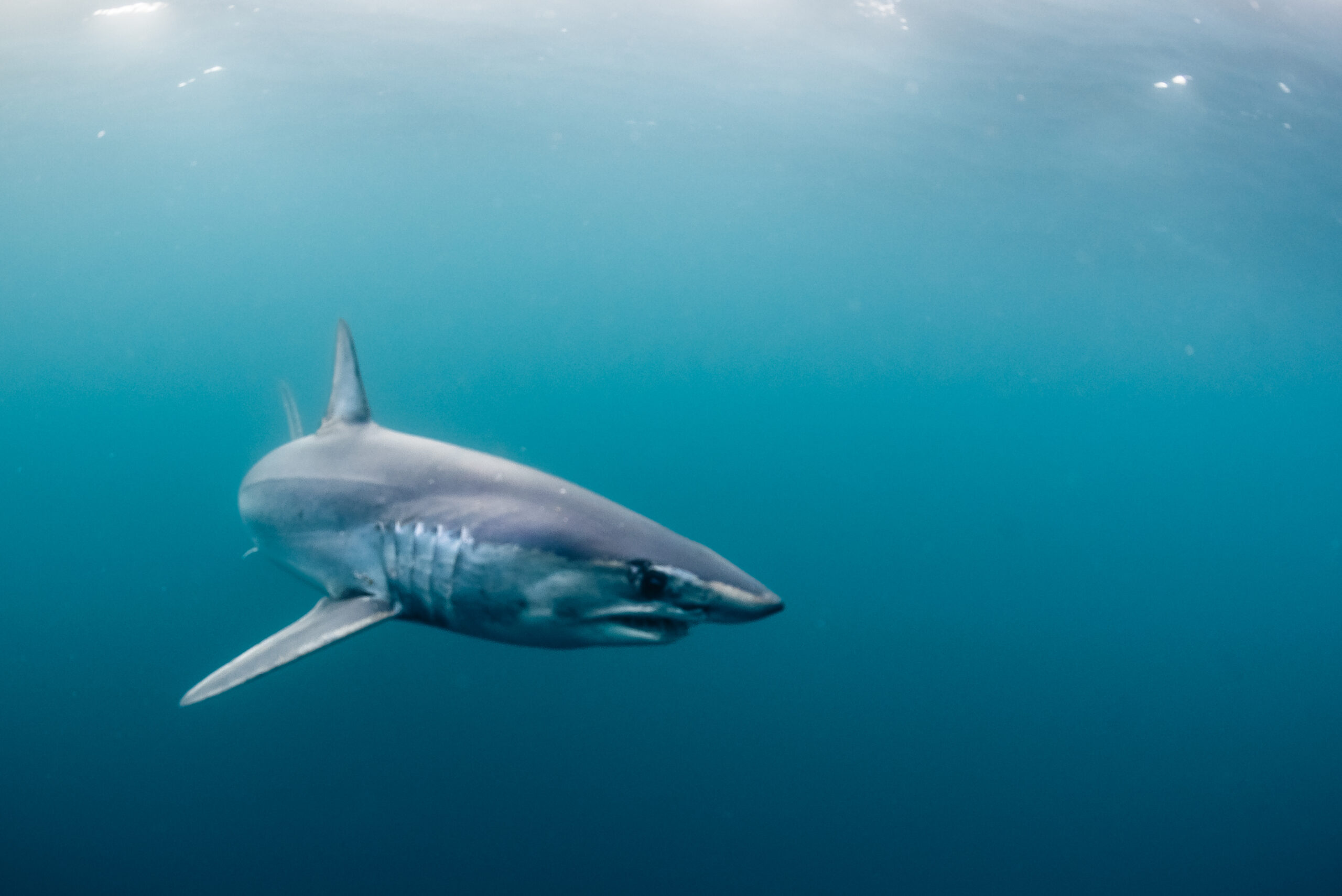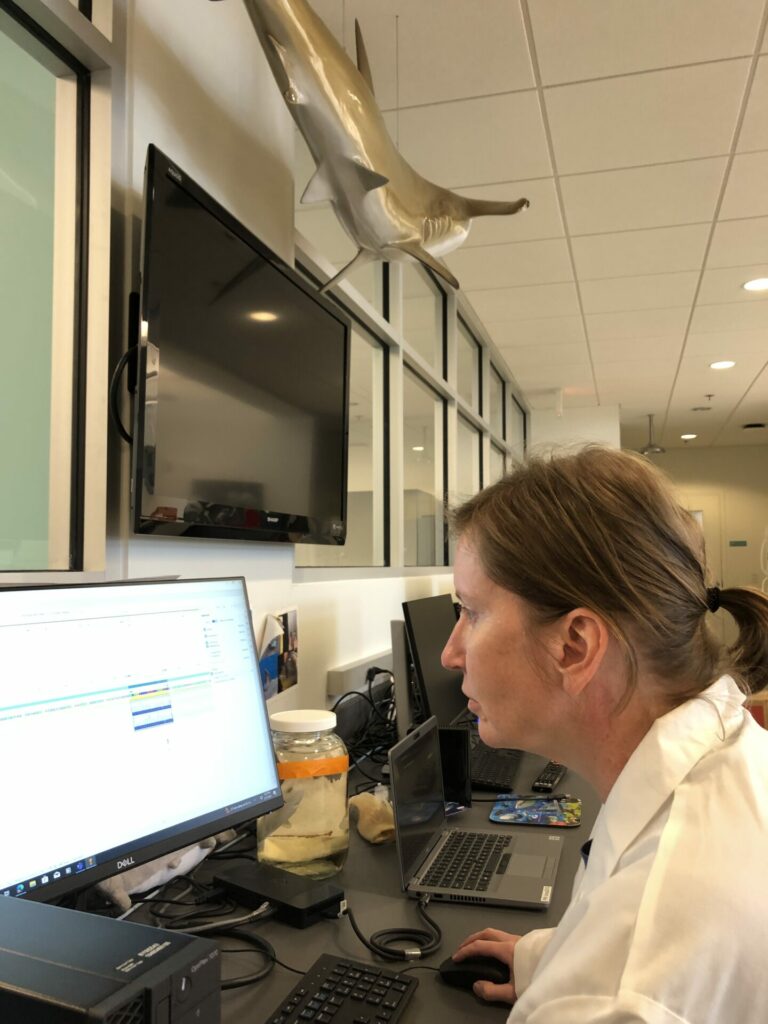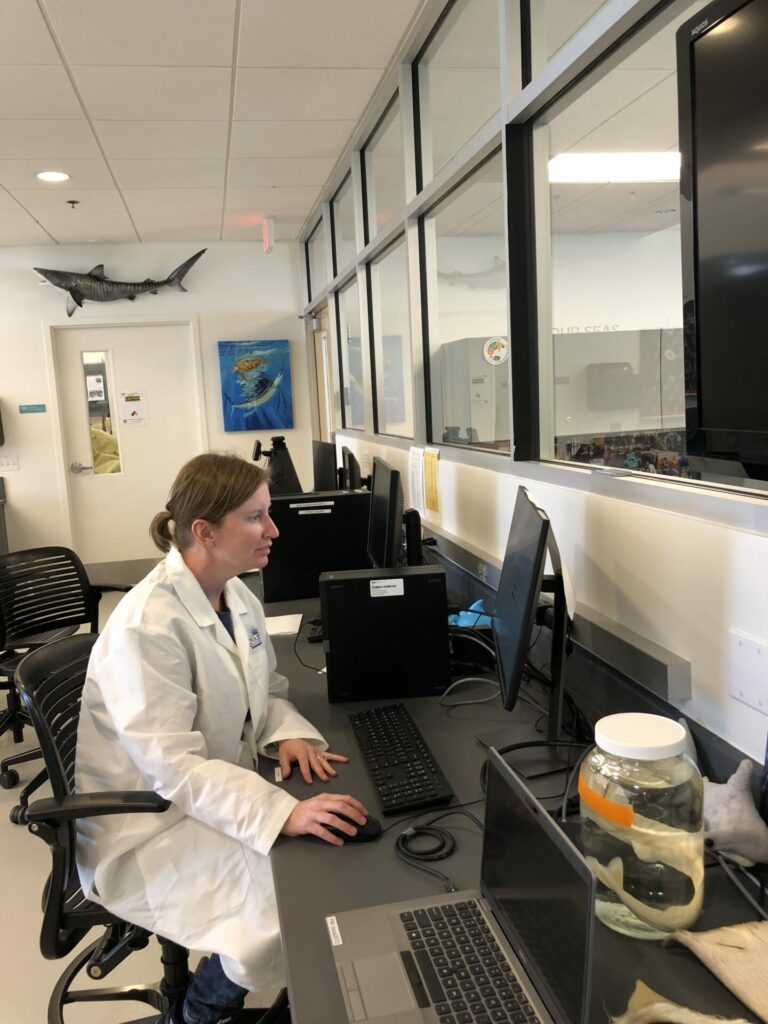Not all shark research happens on the water …
… some of it happens in a laboratory.
One of the research foci of the Save Our Seas Foundation Shark Research Center USA (SOSF-SRC) is studying genome-level biology of elasmobranchs (sharks and rays). This research includes investigating the evolutionary and population histories of elasmobranch species of conservation concern. We research these issues because understanding the genetic makeup and fluctuations of populations and discerning how they responded to historical climatic events and more recent anthropogenic influences such as industrial-scale overfishing, can help us understand the future evolutionary and ecological resilience of species at risk.
One objective of the SOSF-SRC is to elucidate the population dynamics of sharks, including how shark species with large geographic distributions are connected through space and time, both ecologically and genetically. As one example of this interdisciplinary work, we have been studying the migration ecology and genetic connectivity of the shortfin mako shark (“mako”). This majestic shark is a large, fast-swimming, globally distributed species, but due to severe overfishing and resulting drastic population declines the mako has been assessed as “Endangered” by the IUCN Red List. This species has been targeted by recreational and commercial fishers, the latter predominantly due to the mako’s high-value meat and fins, and it is also often caught as by-catch in pelagic longline fisheries targeting other commercially exploited species.
Information concerning the general biology, ecology, and population dynamics of makos is needed to improve their fisheries management and aid their recovery. Some of the initial work of SOSF-SRC scientists, in collaboration with the Guy Harvey Research Institute at NSU Florida, focused on learning about the movements and habitat of use of these fast-swimming sharks, including identifying migratory patterns and corridors, important habitats, and even determining within which sections of the water column (i.e., surface waters vs. depths) they spend most of their time. We also recently determined the DNA sequence of the mako’s entire genetic blueprint (genome), the first such discovery for this species. Now, we are working towards gaining a better understanding of this endangered species’ geographic connectivity and genetic diversity by digging deeper into the DNA of makos from throughout the Atlantic.
With the help of international collaborators, we have collected samples from mako sharks from across the Atlantic Ocean. To get a “full picture” assessment of this species’ genetic properties, we are analyzing DNA from both its whole mitochondrial genome and more than 5000+ nuclear genetic markers. These data will provide information about the ocean-wide genetic connectivity and diversity of this apex predator, it’s evolutionary potential for population recovery from overfishing and adaptation to future climatic changes, to inform management and conservation planning.



